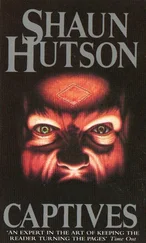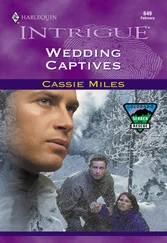Norman Manea - Captives
Здесь есть возможность читать онлайн «Norman Manea - Captives» весь текст электронной книги совершенно бесплатно (целиком полную версию без сокращений). В некоторых случаях можно слушать аудио, скачать через торрент в формате fb2 и присутствует краткое содержание. Год выпуска: 2014, Издательство: New Directions, Жанр: Современная проза, на английском языке. Описание произведения, (предисловие) а так же отзывы посетителей доступны на портале библиотеки ЛибКат.
- Название:Captives
- Автор:
- Издательство:New Directions
- Жанр:
- Год:2014
- ISBN:нет данных
- Рейтинг книги:3 / 5. Голосов: 1
-
Избранное:Добавить в избранное
- Отзывы:
-
Ваша оценка:
- 60
- 1
- 2
- 3
- 4
- 5
Captives: краткое содержание, описание и аннотация
Предлагаем к чтению аннотацию, описание, краткое содержание или предисловие (зависит от того, что написал сам автор книги «Captives»). Если вы не нашли необходимую информацию о книге — напишите в комментариях, мы постараемся отыскать её.
Captives
This is a moving account of a country shaken by communism and anti-Semitism and haunted by recent atrocities, from "a distinguished writer whose vision of totalitarianism is close to Kafka's cloudy menace, universal yet internalized" (Richard Eder,
).
Captives — читать онлайн бесплатно полную книгу (весь текст) целиком
Ниже представлен текст книги, разбитый по страницам. Система сохранения места последней прочитанной страницы, позволяет с удобством читать онлайн бесплатно книгу «Captives», без необходимости каждый раз заново искать на чём Вы остановились. Поставьте закладку, и сможете в любой момент перейти на страницу, на которой закончили чтение.
Интервал:
Закладка:
I used to gather the paperback, clothbound, and hardcover books. The stacks would grow taller than my head. . I needed to conserve myself, hermetically sealed on my shelf. Lacking air, the books rotted inside me. With all its games and noises, summer wasn’t getting close to the shelf where I’d perched. Everything stood stock still around me. There was no movement and therefore no time.
The narrator’s preoccupation with hermetic sealing derives explicitly from a passage in The Magic Mountain , and expresses a deep concern with the relationship between trauma and forgetting, which have severed these characters from what would have been their normal course of development. What results both in their direct and in their reported inner speech is a trajectory toward stasis: the denial or refusal of personal growth. Communist Romania, Captives implies, isn’t just a hermetically sealed can inhabited by the comatose because of its citizens’ inability to leave the country. It is a self-made psychological vacuum.
Operating in this psychological vacuum, Captives itself exhibits a mentality that is unstabilized, unmoored. The book is ostensibly the semi-therapeutic writing of a madman who suffers from attempts to disconnect himself from his past. The result is language that continuously tries to make “anything” — to use the narrator’s word — of the world around the narrator/protagonist in his doomed effort to keep psychologically afloat. Consider the following passage, which spans two subsections of Captives’ final chapter:
A day has gone by, a week. Am still a somnolent high-school student. No, only a day, a week, a Saturday has gone by, and talk of confusion would be justified. Machines for typing and checking and intercepting and photographing and following and reproducing: their monotonous patter is here, and myself. . fugitive, lost, stalked from every corner, unable to sleep.
“You walk, you walk forever, you have lost time and it has lost you. . a terrain, sprinkled with seaweed and tiny shells; hearing thrilled by that unbridled wind that freely roves. . we
watch the tongues of sea foam stretch to lick our feet.”
Under the waves, under the stroking foam, the sea roars in the great castle of water.
• • •
The sea boomed. The thick castle walls kept out the noise of waves, but other sounds collided and crossed paths in the great hall: the release of bolts, metallic clanks, keys turning in locks, latches, heavy springs. Between them, odd, erratic breaks. One, pause. Two-three, pause. Four-five-six, pause. One, pause, two-three, then four-five-six, pause. Over and again, perpetual clanking, a continuous murmur from the right. To the left, short breaks; to the right, the crowded taps of many fingers, hammering.
Raised my eyes. Found myself on a chair placed to the right of a medium-sized table.
Here, the narrator allows himself to flow through several states that include almost simultaneously recalling events from high school and from his working life, while also entering a hallucinatory state or a timeless dream of walking forever by the sea, only to find himself back in his office, seated on a chair. Talk of confusion would indeed be justified.
In this way, as if it were science fiction (which it certainly is not), Captives exists as a world in which versions of reality melt into each other in a continuous series of visions and revisions. Entering Captives’ first section, “She,” for the first time, the reader will be surprised to find the narrator/protagonist going upstairs to the apartment of Monica Smântănescu, Professor of French and Music. He makes two approaches, and each time the apartment is different. On the first try, his visit goes like this:
. . The building’s staircase: step, riser, step, riser — chunks of ice. The final threshold, the wooden door covered in arabesques, angels sculpted from edge to edge on its wide margins. The door opens toward books heaped on heavy iron shelves, vases with slender flowers, a narrow table, a tall chair, a piano raising its oblique tail, the ceiling painted with pastel squares, the slippery parquet: everything accumulated with the serenity of a fairy tale, until chaos imposes itself, until the path from the street corner must be taken again, killing reveries, reestablishing the brutality of things, dispelling mystifications, until the street reasserts its filth. .
On the second attempt, better anchored in reality, the apartment turns out to be a pigsty. Similarly, there are to two versions of the narrator’s initial meeting with Ms. Smântănescu: they meet on a train — or is it a boat? By the third section, “I,” the reader will have to decide if a woman known only as Captain Zubcu’s daughter is either (a) a mystical avatar of the narrator’s sister Dona, long dead in Transnistria, or (b) an office girl he seduces and abandons, though given the novel’s deeper themes there’s no reason why she can’t be both.
Captives is remarkable for saying everything and nothing: there is no historical backstory. We never hear that the action takes place in Romania — the country is not named. We are not told that the protagonist’s family is Jewish. Joseph Stalin’s name is not mentioned once, although he is referenced in the subtle details: the narrator’s show trial is Stalinist; the narrator stumbles into a political meeting where we are given to understand that the attendees chant Sta-lin, Sta-lin ; and the narrator attends a mass outdoor commemoration in honor of the Beloved Leader at the time of his death.
This language of omission obviously owes something to the climate of censorship in which Captives first appeared. It’s also a safe bet that Captives’ omissions wouldn’t have pulled the wool over anyone’s eyes, which more than suggests that the language of omission is a strategic, literary act.
Even though Captives was written to appear in communist Romania, even though its characters are Romanian, and even though it passed through Romanian censorship, still, Captives is not only (or primarily) a novel about Romania, or the Holocaust, or communist dictatorships. It is these things, of course, but freed of the explicit by omission, Captives creates its own world and can be read on its own terms. It demands that we experience life in a world of things unsaid, which makes silence one of the “loudest” voices in the book. Deafened by silence, we experience captivity, and silence becomes the gadfly of protest.
If silence is maddening, so are the implied and the tacit. They play games of “I dare you” and “now you see it, now you don’t.” At the level of conversation, Captives’ language is quicksand.
The office spy, Misha (who is presumably in the pay of the Securitate), plagues our protagonist with seemingly inoffensive remarks. At one point they engage in the following non-dialogue:
— I’ve been thinking, everything they’re saying about Kennedy is a bunch of shit. Robert, the brother, is hiding the photographs of the autopsy, and saying they’ll only be revealed in ’71 because they’re
horrible
?
Unobtrusive voice, fixed gaze, astonished.
— What exactly can be so horrible? If it was Oswald who shot him or the other guy, who cares? What’s so horrible?
He asks and answers, poses and resolves dilemmas meant to provoke his interlocutor.
— It’s clear that Johnson shot him. Otherwise, there’d be nothing horrible at all.
What does the informer want his interlocutor to say? Something about the Kremlin’s responsibility for the Kennedy assassination? Whatever Misha says is untrustworthy, not least because it’s incomprehensible. It’s impossible to find the core of his remarks. Silence is the only safe response.
Читать дальшеИнтервал:
Закладка:
Похожие книги на «Captives»
Представляем Вашему вниманию похожие книги на «Captives» списком для выбора. Мы отобрали схожую по названию и смыслу литературу в надежде предоставить читателям больше вариантов отыскать новые, интересные, ещё непрочитанные произведения.
Обсуждение, отзывы о книге «Captives» и просто собственные мнения читателей. Оставьте ваши комментарии, напишите, что Вы думаете о произведении, его смысле или главных героях. Укажите что конкретно понравилось, а что нет, и почему Вы так считаете.












